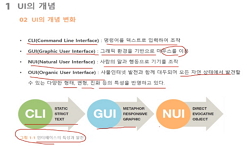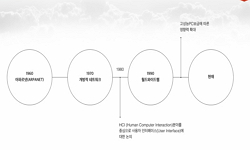Purpose: The purpose of this research is that Metaverse platforms’ UXBDI can be distinguished among Metaverse platform channel types. Metaverse platform represents a collective term signifying services that include augmented reality, lifelogging, mi...
http://chineseinput.net/에서 pinyin(병음)방식으로 중국어를 변환할 수 있습니다.
변환된 중국어를 복사하여 사용하시면 됩니다.
- 中文 을 입력하시려면 zhongwen을 입력하시고 space를누르시면됩니다.
- 北京 을 입력하시려면 beijing을 입력하시고 space를 누르시면 됩니다.


The Effects of User Experience-Based Design Innovativeness on User-Metaverse Platform Channel Relationships in South Korea
한글로보기https://www.riss.kr/link?id=A107906763
-
저자
Joo-Eon JEON (Anyang University)

- 발행기관
- 학술지명
- 권호사항
-
발행연도
2021
-
작성언어
-
- 주제어
-
KDC
320
-
등재정보
KCI등재,SCOPUS
-
자료형태
학술저널
- 발행기관 URL
-
수록면
81-90(10쪽)
-
KCI 피인용횟수
1
- 제공처
-
0
상세조회 -
0
다운로드
부가정보
다국어 초록 (Multilingual Abstract)
Purpose: The purpose of this research is that Metaverse platforms’ UXBDI can be distinguished among Metaverse platform channel types. Metaverse platform represents a collective term signifying services that include augmented reality, lifelogging, mirror worlds, and virtual worlds. User Experience-Based Design Innovativeness (UXBDI) is characterized by novelty in product design and services that satisfy user experience. This study examined the effect of Metaverse platforms’ UXBDI on user-Metaverse platform relationships. Research design, data and methodology: Metaverse platform users were selected as samples, and a marketing research institution known as a panel company conducted the survey. It used multiple regression to test the impact on platform identification and commitment based on a survey of 442 South Korean respondents. Results: The research confirmed that UXBDI sub-dimensional scales of attractiveness and interaction increased user-Metaverse platform identification and commitment. Also, a Metaverse platform identity increased user-Metaverse platform identification in virtual and mirror worlds. Conclusion: This study contributes to multiple academic fields. First, the UXBDI of Metaverse platforms appears to be a key component of ongoing user-Metaverse relationships. Second, UXBDI affects relationships differently based on the Metaverse platform type.
목차 (Table of Contents)
- 1. Introduction 2. Literature Review 3. Methodology 4. Results 5. Discussion and Conclusions References
- 1. Introduction 2. Literature Review 3. Methodology 4. Results 5. Discussion and Conclusions References
참고문헌 (Reference)
1 전주언, "사용자 경험 기반 디자인 혁신성 척도개발과 타당화" 한국서비스경영학회 22 (22): 55-85, 2021
2 Adner, R., "Value creation in innovation ecosystems : How the structure of technological interdependence affects firm performance in new technology generations" 31 (31): 306-333, 2010
3 Hassenzahl, M., "User experience—A research agenda" 25 (25): 91-97, 2006
4 Chung, N., "The relationship among tourists’persuasion, attachment and behavioral changes in social media" 123 (123): 370-380, 2017
5 Rehm, S. V., "The metaverse as mediator between technology, trends, and the digital transformation of society and business" 8 (8): 1-8, 2015
6 Jeon, J. E., "The effect of sensory satiety on perceinced benefits : The case of aesthetic consumption in South Korea" 12 (12): 8637-, 2020
7 Wrigley, C., "Teaching design led innovation : The future of industrial design" 5 (5): 231-240, 2011
8 Papagiannidis, S., "Staging the New Retail Drama: At a Metaverse near you!" 2 (2): 425-446, 2010
9 Chung, N., "Social support and commitment within social networking site in tourism experience" 9 (9): 2102-, 2017
10 Mugge, R., "Seeking the ideal level of design newness : Consumer response to radical and incremental product design" 30 (30): 34-47, 2013
1 전주언, "사용자 경험 기반 디자인 혁신성 척도개발과 타당화" 한국서비스경영학회 22 (22): 55-85, 2021
2 Adner, R., "Value creation in innovation ecosystems : How the structure of technological interdependence affects firm performance in new technology generations" 31 (31): 306-333, 2010
3 Hassenzahl, M., "User experience—A research agenda" 25 (25): 91-97, 2006
4 Chung, N., "The relationship among tourists’persuasion, attachment and behavioral changes in social media" 123 (123): 370-380, 2017
5 Rehm, S. V., "The metaverse as mediator between technology, trends, and the digital transformation of society and business" 8 (8): 1-8, 2015
6 Jeon, J. E., "The effect of sensory satiety on perceinced benefits : The case of aesthetic consumption in South Korea" 12 (12): 8637-, 2020
7 Wrigley, C., "Teaching design led innovation : The future of industrial design" 5 (5): 231-240, 2011
8 Papagiannidis, S., "Staging the New Retail Drama: At a Metaverse near you!" 2 (2): 425-446, 2010
9 Chung, N., "Social support and commitment within social networking site in tourism experience" 9 (9): 2102-, 2017
10 Mugge, R., "Seeking the ideal level of design newness : Consumer response to radical and incremental product design" 30 (30): 34-47, 2013
11 Sigerson, L., "Scales for measuring user engagement with social network sites: A systematic review of psychometric properties" 83 (83): 87-105, 2018
12 Kim, S. K., "Metaverse" Plan B Design 2020
13 Papagiannidis, S., "Making real money in virtual worlds : MMORPGs and emerging business opportunities, challenges and ethical implications in metaverses" 75 (75): 610-622, 2008
14 Veryzer, R. W., "Key factors affecting customer evaluation of discontinuous new products" 15 (15): 136-150, 1998
15 Lee, S. G., "Innovation and imitation effects in Metaverse platform adoption" 5 (5): 155-172, 2011
16 Bloch, P. H., "Individual differences in the centrality of visual product aestheticsesthetics : Concept and measurement" 29 (29): 551-565, 2003
17 Desmet, P. M. A., "Framework of product experience" 1 (1): 57-66, 2007
18 Chu, S. C., "Electronic word-of-mouth in social networking sites : A cross-cultural study of the United States and China" 24 (24): 263-281, 2011
19 Hinderks, A., "Developing a UX KPI based on the user experience questionnaire" 65 (65): 38-44, 2019
20 Kang, M., "Determinants of sharing travel experiences in social media" 30 (30): 93-107, 2013
21 Shin, Y., "Design for experience innovation : Understanding user experience in new product development" 36 (36): 1218-1234, 2017
22 Goutam, D., "Customer loyalty development in online shopping : An integration of e-service quality model and commitment-trust theory" 8 (8): 1149-1158, 2018
23 Malhotra, Y., "A multidimensional commitment model of volitional systems adoption and usage behavior" 22 (22): 117-151, 2005
24 Choi, H. S., "A content service deployment plan for metaverse museum exhibitions—Centering on the combination of beacons and HMDs" 37 (37): 1519-1527, 2017
25 Hendaoui, A., "3D social virtual worlds : Research issues and challenges" 12 (12): 88-92, 2008
동일학술지(권/호) 다른 논문
-
- 한국유통과학회
- Ngoc-Hong DUONG
- 2021
- KCI등재,SCOPUS
-
Which Node of Supply Chain Suffers Mostly to Disruption in the Pandemic?
- 한국유통과학회
- Tram Thi Bich NGUYEN
- 2021
- KCI등재,SCOPUS
-
- 한국유통과학회
- Rina Suthia Hayu
- 2021
- KCI등재,SCOPUS
-
- 한국유통과학회
- Elkana TIMOTIUS
- 2021
- KCI등재,SCOPUS
분석정보
인용정보 인용지수 설명보기
학술지 이력
| 연월일 | 이력구분 | 이력상세 | 등재구분 |
|---|---|---|---|
| 2023 | 평가예정 | 해외DB학술지평가 신청대상 (해외등재 학술지 평가) | |
| 2020-01-01 | 평가 | 등재학술지 유지 (해외등재 학술지 평가) |  |
| 2013-01-01 | 평가 | 등재학술지 선정 (등재후보2차) |  |
| 2012-01-01 | 평가 | 등재후보 1차 PASS (등재후보1차) |  |
| 2010-01-01 | 평가 | 등재후보학술지 선정 (신규평가) |  |
| 2005-01-24 | 학회명변경 | 영문명 : Korean Academy Of Distribution Science -> Korea Distribution Science Association |
학술지 인용정보
| 기준연도 | WOS-KCI 통합IF(2년) | KCIF(2년) | KCIF(3년) |
|---|---|---|---|
| 2016 | 0.72 | 0.72 | 0.69 |
| KCIF(4년) | KCIF(5년) | 중심성지수(3년) | 즉시성지수 |
| 0.7 | 0.72 | 0.762 | 0.31 |




 ScienceON
ScienceON 스콜라
스콜라






